- Introduction
- The Multifaceted Benefits of Yoga and Meditation
- Best Apps for Yoga and Meditation
- Top Yoga Poses for Stress Reduction
- Top Meditation Techniques for Stress Reduction
- Tips for Incorporating Yoga and Meditation into Daily Routine
- Real-Life Success Stories of Stress Reduction Through Yoga and Meditation
- Conclusion: Embracing Yoga and Meditation for Stress Management
- Frequently Asked Questions
Introduction
In the fast-paced world we live in, stress has become a common ailment affecting millions globally. Amidst the chaos, yoga and meditation have emerged as beacons of hope, offering solace and a path to tranquility. These ancient practices have gained immense popularity as effective stress management tools, promoting overall well-being and a balanced lifestyle. They are not just exercises for the body but also nourishment for the mind and soul, providing a holistic approach to health.
The Multifaceted Benefits of Yoga and Meditation
Yoga and meditation offer a plethora of benefits that extend beyond mere stress reduction. Physically, yoga enhances flexibility, improves posture, and increases muscle tone. It also boosts respiratory, and cardiovascular health, and promotes better sleep patterns. Mentally, it sharpens concentration, fosters mental clarity, and aids in calming the mind.
Meditation complements these benefits by encouraging deep relaxation and mindfulness. It trains the mind to focus on the present moment, reducing the overstimulation that often leads to stress. Through regular practice, individuals can develop a heightened awareness of their thoughts and emotions, leading to better stress management and emotional well-being.
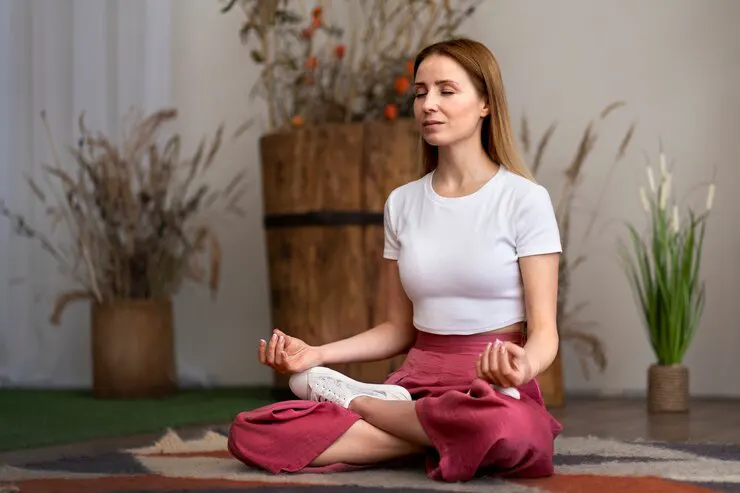
Scientific Evidence Supporting Stress Management
The effectiveness of yoga and meditation in managing stress is not just anecdotal; it is backed by scientific research. Studies have shown that practicing Hatha yoga three times a week can lead to significant reductions in stress, depression, and anxiety. Moreover, meditation practices like yoga nidra have been found to reduce stress levels, enhance overall well-being, and improve sleep quality.
These findings underscore the potential of yoga and meditation as complementary therapies for stress-related conditions, possibly reducing the need for prescription medications. As more people turn to these practices for relief, the body of scientific evidence continues to grow, supporting their role in fostering a healthier, more peaceful society.
Yoga and meditation are powerful tools for combating stress, offering a natural and holistic approach to health that benefits both the mind and body. Their growing popularity is a testament to their effectiveness, and with continued practice, they can lead to profound changes in one’s approach to life’s challenges, paving the way for a calmer, more centered existence.
Best Apps for Yoga and Meditation
In the quest for serenity and balance, many turn to yoga and meditation. With technology at our fingertips, a variety of apps have surfaced to guide users through these ancient practices. Here are some of the most popular apps that offer comprehensive yoga and meditation sessions:
- Headspace: Known for its user-friendly interface, Headspace provides a vast collection of meditations, calming sleep sounds, yoga routines, and focused music. It’s designed to help users catch their breath, relax their minds, and feel less stressed.
- Insight Timer: Boasting a free version, Insight Timer offers a wide range of meditations and boasts a large community of users. It’s praised for its value and the diversity of content available.
- Calm: This app is celebrated for its accessibility and variety of mindfulness options, including guided meditations, sleep stories, and relaxing music.
- Sattva: Sattva draws on ancient Vedic principles of meditation and includes features like mood tracking, which can help users gauge their progress over time.
User reviews often highlight the ease of use and the positive impact on stress levels, making these apps highly rated choices for those seeking stress reduction tools.
Top Yoga Poses for Stress Reduction
Yoga poses, or asanas, are a key component of stress management. Here are some top poses known for their stress-reducing benefits:
- Marjaryasana (Cat Pose): This pose involves getting on all fours and arching the back upwards while releasing the head towards the floor, resembling a stretching cat. It’s excellent for soothing the lower back and cooling down the muscles.
- Bitilasana (Cow Pose): Often paired with Cat Pose, Cow Pose requires you to be on all fours, curving the belly downwards and looking up. It warms the spine and helps create emotional balance by massaging the organs.
- Balasana (Child’s Pose): A simple pose where you kneel and sit back on your heels, stretching your arms forward. It’s a restful pose that allows for a gentle stretch of the back muscles and is accessible for beginners.
Each of these poses helps in reducing stress by promoting relaxation, stretching tense muscles, and allowing a moment of calm. They are easy to incorporate into your daily routine and can make a significant difference in managing stress levels and enhancing relaxation. Remember to listen to your body and move into each pose with mindfulness and care.
Top Meditation Techniques for Stress Reduction
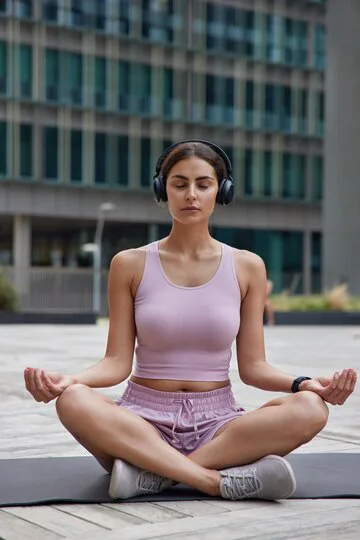
Meditation has long been recognized as an effective tool for combating stress and fostering a sense of peace and mindfulness. Here are some meditation techniques that can help reduce stress:
- Mindfulness Meditation: This involves focusing on the present moment and accepting it without judgment. Begin by locating a serene spot to sit or recline. Shut your eyes and inhale deeply, concentrating on the feeling of air flowing in and out of your body. As thoughts arise, acknowledge them and let them pass without engagement.
- Progressive Muscle Relaxation: Begin in a comfortable seated or lying position. Tense each muscle group for about five seconds and then relax for 30 seconds, progressing from your toes to your head. This helps release physical tension and stress.
- Guided Imagery: Find a quiet space and listen to a recording that describes a peaceful scene. Visualize the details of this environment and allow yourself to become fully immersed in the experience, which can provide a mental escape from stress.
Incorporating these meditation techniques into your daily routine can lead to significant benefits for stress management. Regular practice can improve mental clarity, reduce anxiety, and enhance overall emotional well-being.
Tips for Incorporating Yoga and Meditation into Daily Routine
Making yoga and meditation a part of your daily life can be transformative. Here are some suggestions to assist you in developing a steady routine:
- Start Small: Begin with just a few minutes of yoga or meditation each day and gradually increase the duration as you become more comfortable with the practice.
- Create a Dedicated Space: Set aside a specific area in your home that is quiet, uncluttered, and conducive to relaxation. This will help you associate this space with mindfulness and tranquility.
- Incorporate Practice into Your Morning Routine: Performing yoga or meditation in the morning can set a positive tone for the day ahead. Even a short session can have a lasting impact on your stress levels throughout the day.
- Be Consistent: Try to practice at the same time each day to establish a routine. Consistency is key to experiencing the full benefits of yoga and meditation.
Remember, the journey to incorporating yoga and meditation into your life is a personal one. Be patient with yourself, and over time, you’ll likely find that these practices become an invaluable part of your daily routine, offering a refuge from the stresses of everyday life.
Real-Life Success Stories of Stress Reduction Through Yoga and Meditation
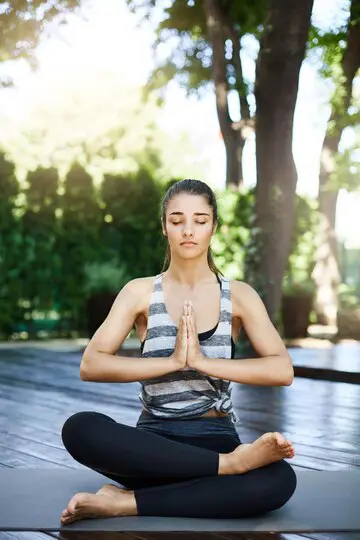
The transformative power of yoga and meditation is evident in the countless success stories shared by individuals from all walks of life. Take Rajes Govender, a 69-year-old from South Africa, who found yoga to be a grounding force during the most challenging time of his life. Battling Stage 3 Cancer, he discovered that his practice of yoga, meditation, and breathwork helped him handle stressful situations with greater ease. Despite his physical weakness, his mental strength was bolstered by his daily practice, which alleviated symptoms like vomiting and nausea, and enhanced his spiritual well-being.
Similarly, Dr. Sumana, a frontline doctor treating COVID-19 patients, attributes her resilience during the pandemic to her routine of yoga and meditation. Remarkably, she remained uninfected even as her colleagues contracted the virus multiple times, a testament to the protective and stress-reducing effects of her practice.
These stories are not isolated instances but represent a broader trend of individuals turning to yoga and meditation as effective tools for managing stress and improving quality of life. They serve as powerful testimonials to the potential of these practices in fostering resilience, promoting health, and enhancing one’s sense of gratitude and energy.
Conclusion: Embracing Yoga and Meditation for Stress Management
The journey through yoga and meditation is one of self-discovery and transformation. The practices offer more than just stress relief; they provide a pathway to a more mindful, peaceful, and fulfilling life. The personal anecdotes shared in this article illustrate the profound impact that yoga and meditation can have on an individual’s ability to manage stress and face life’s challenges with strength and grace.
As we conclude, let us take inspiration from these success stories and consider incorporating yoga and meditation into our own lives. Whether you are seeking to reduce stress, improve mental clarity, or simply find a moment of peace in your day, these practices offer a wealth of benefits. Remember, the journey to wellness begins with a single step, and sometimes, that step is as simple as taking a deep breath and being present in the moment. Embrace the art of self-care and mindfulness, and allow yoga and meditation to guide you towards a healthier, more balanced state of being.
Frequently Asked Questions
01. Does meditation reduce stress levels?
Meditation and Stress: Yes, meditation is known to reduce stress levels by changing the brain and biology in positive ways, leading to improved mental and physical health.
02. Which yoga is best for reduce stress?
Yoga for Stress: Practices like Hatha, restorative, or Yin yoga are recommended for anxiety relief as they promote relaxation.
03. What are the 4 A’s of stress management?
4 A’s of Stress Management: The 4 A’s are Avoid, Alter, Accept, and Adapt, which are strategies to cope with stress effectively.
04. What is the best way to handle stress?
Handling Stress: Combining healthy lifestyle choices with techniques like deep breathing, meditation, and yoga is considered effective for stress management.
05. What are 5 emotional signs of stress?
Emotional Signs of Stress: Common emotional signs include anxiety, irritability, mood swings, depression, and feeling overwhelmed.
06. What are the 7 ways of relieving stress?
Relieving Stress: Effective methods include guided imagery, meditation, muscle relaxation, deep breathing, walks, hugs, and aromatherapy.
07. Should you do yoga and meditation together?
Yoga and Meditation Together: Doing both can enhance flexibility, balance, posture, and also lead to a deeper sense of self-awareness and inner peace.
08. What are the benefits of yoga asanas and meditation?
Benefits of Asanas and Meditation: They offer improved flexibility, strength, mental health, stress relief, and can even counter cognitive decline.
09. Why do yogis meditate?
Yogis and Meditation: Yogis meditate to reach a state of deep inner peace, create new neural pathways, and connect with the universal consciousness.
10. Is it better to meditate or yoga first?
Meditation or Yoga First: It’s generally better to meditate before yoga to help with relaxation and concentration, but this can vary based on personal preference.
*Image credits- freepik*
Important Notice:
The information provided on “health life ai” is intended for informational purposes only. While we have made efforts to ensure the accuracy and authenticity of the information presented, we cannot guarantee its absolute correctness or completeness. Before applying any of the strategies or tips, please consult a professional medical adviser.










